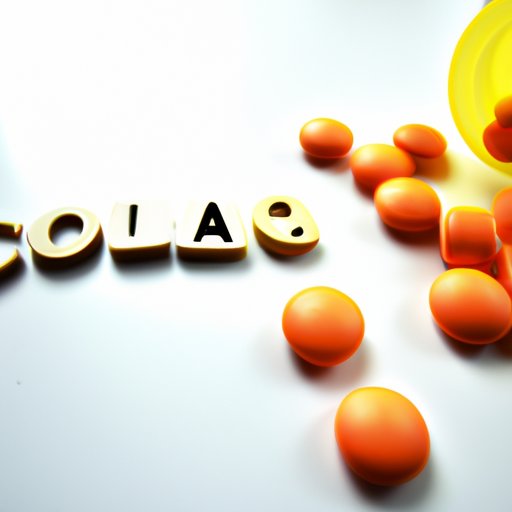Introduction
Folic acid is a B-vitamin found naturally in some foods and added to others. It is also available as a supplement. Folic acid is essential for the body to make healthy new cells and for proper cell function. It helps prevent birth defects and supports general health and wellbeing.
Overview of Health Benefits
Folic acid plays an important role in the body. It helps form DNA and RNA, the building blocks of cells, and is needed for proper cell division. It also helps break down homocysteine, a type of amino acid linked with heart disease. Getting enough folic acid can help reduce the risk of certain cancers and birth defects.

How Folic Acid Affects Different Life Stages
Infants
Folic acid is especially important for infants, since their bodies are still developing. During infancy, folic acid helps form new red blood cells, which carry oxygen throughout the body. It also helps form healthy brain tissue and nerve cells.
Children
For children, getting enough folic acid is important for growth and development. It helps produce energy from the foods they eat, and helps create healthy cells and tissues. Folic acid also helps form red blood cells and maintain normal levels of homocysteine, which can protect against heart disease.
Adolescents
Adolescence is a time of rapid physical and mental growth. Folic acid is important for this process, helping to form new cells and create healthy tissue. It is also important for immune system health, and may help reduce the risk of certain birth defects and chronic diseases.
Adults
For adults, folic acid helps produce and maintain healthy cells. It also helps to form new red blood cells and break down homocysteine, which can reduce the risk of heart disease. In addition, folic acid may help reduce the risk of certain types of cancer, such as colorectal cancer.
A Comprehensive Guide to Folic Acid Intake
Recommended Dietary Allowance (RDA)
The Recommended Dietary Allowance (RDA) for folic acid is 400 mcg per day for adults and children over 4 years of age. Women who are pregnant or breastfeeding may need more folic acid, so talk to your doctor about what amount is right for you.
Daily Intake Recommendations
Most people should aim to get 400 mcg of folic acid each day. However, if you are pregnant or breastfeeding, you may need more. Talk to your doctor about what amount is right for you. It is important to get enough folic acid from both natural food sources and supplements.
What Foods Contain Folic Acid?
Natural Sources
Folic acid is found naturally in some foods, including leafy green vegetables, citrus fruits, legumes, nuts, and grains. Some fortified foods, such as breakfast cereals and breads, may also contain added folic acid. It is important to eat a variety of foods that are rich in folic acid.
Supplements
Folic acid is also available in supplement form. If you choose to take a supplement, it is important to talk to your doctor first to make sure it is safe for you. Supplements may contain more than the recommended amount of folic acid, so it is important to follow dosing instructions carefully.

Understanding the Role of Folic Acid in Pregnancy
Benefits for Expectant Mothers
Folic acid is important for pregnant women. It helps form healthy cells and tissues in the unborn baby, and may help reduce the risk of certain birth defects. It is also important for expectant mothers, as it helps form healthy red blood cells and keeps homocysteine levels in check.
Benefits for Unborn Babies
Getting enough folic acid before and during pregnancy is essential for the health of the unborn baby. It helps form healthy cells and tissues, and may help reduce the risk of certain birth defects, such as spina bifida, cleft palate, and neural tube defects. It is important for pregnant women to get enough folic acid from both food and supplements.

The Connection Between Folic Acid Deficiency and Disease
Anemia
Folic acid deficiency can lead to a type of anemia called megaloblastic anemia. This condition occurs when there are not enough healthy red blood cells in the body. Symptoms of anemia include fatigue, weakness, and shortness of breath.
Neural Tube Defects
Folic acid deficiency is also linked to an increased risk of certain birth defects, such as neural tube defects. These defects occur when the neural tube fails to develop properly in the womb, leading to conditions such as spina bifida and anencephaly.
Conclusion
Folic acid is an essential B-vitamin that plays an important role in the body. It helps form healthy cells and tissues, and may help reduce the risk of certain birth defects and chronic diseases. To get enough folic acid, aim for 400 mcg per day from both natural food sources and supplements. Talk to your doctor about what amount is right for you.
Folic acid is especially important for pregnant women and those at risk of anemia and neural tube defects. Eating a variety of foods that are rich in folic acid, such as leafy green vegetables, citrus fruits, legumes, nuts, and grains, is the best way to get enough of this essential vitamin.


